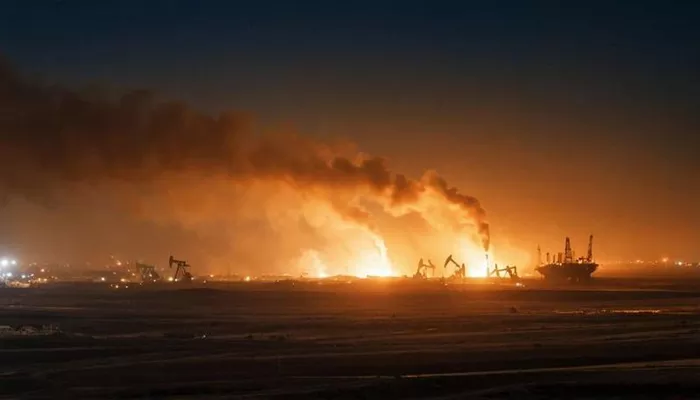Oil prices continued to climb Monday as Israel and Iran engaged in a fourth consecutive day of missile exchanges, raising concerns about a protracted conflict that could further drive up inflation globally.
Gold prices also edged higher, nearing record levels as investors sought safe-haven assets amid escalating tensions. While most equity markets extended losses, the declines remained modest, fueled by hopes that the conflict would not spread across the Middle East.
The focus of investors has shifted towards upcoming key central bank meetings this week, particularly those of the US Federal Reserve and the Bank of Japan. Market participants are also watching trade negotiations in Washington aimed at mitigating the impact of President Donald Trump’s steep tariffs.
The crisis intensified after Israel’s surprise airstrikes on last Friday targeted Iranian military and nuclear facilities, killing senior commanders and scientists. This move sparked a sharp jump in crude prices—surging as much as 13 percent—on fears of potential supply disruptions from the oil-rich region.
Market analysts warn the surge in oil prices could reignite global inflation, undermining efforts by governments and central banks to stabilize prices and raising concerns about the fragile state of many economies.
Tony Sycamore, market analyst at IG, explained, “Higher energy prices will slow growth and push headline inflation upward. Central banks may tolerate a temporary spike, but if prices stay elevated, it could drive core inflation higher as businesses pass on increased transport and production costs.”
Sycamore added that sustained higher inflation would limit central banks’ ability to cut interest rates to offset the economic slowdown triggered by Trump’s tariffs, adding complexity to the Federal Reserve’s upcoming policy decisions.
Both major oil benchmarks rose over one percent in early Asian trading.
Central Banks and Market Fundamentals in Focus
Allen Good, director of equity research at Morningstar, downplayed the risk of a broader conflict, noting that “oil markets remain well supplied, with OPEC committed to increasing production and demand softening.” He also highlighted that US production, though slowing, could bounce back if prices stay high.
Good emphasized that “the Trump administration remains committed to diplomatic talks with Iran,” suggesting that fundamentals—not geopolitical risk premiums—will ultimately guide oil prices.


